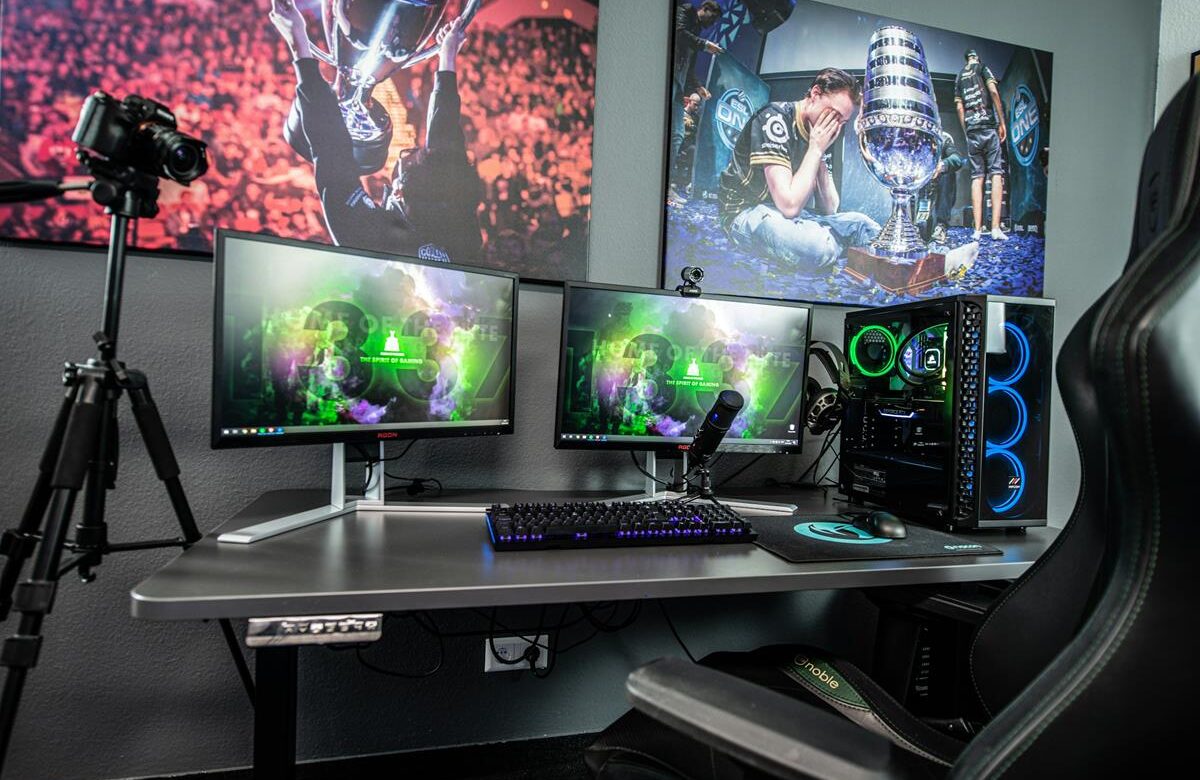- Computer
- October 15, 2024
- No Comment
- 19
Reports say that Qualcomm Snapdragon X Series laptops offer poor performance in games
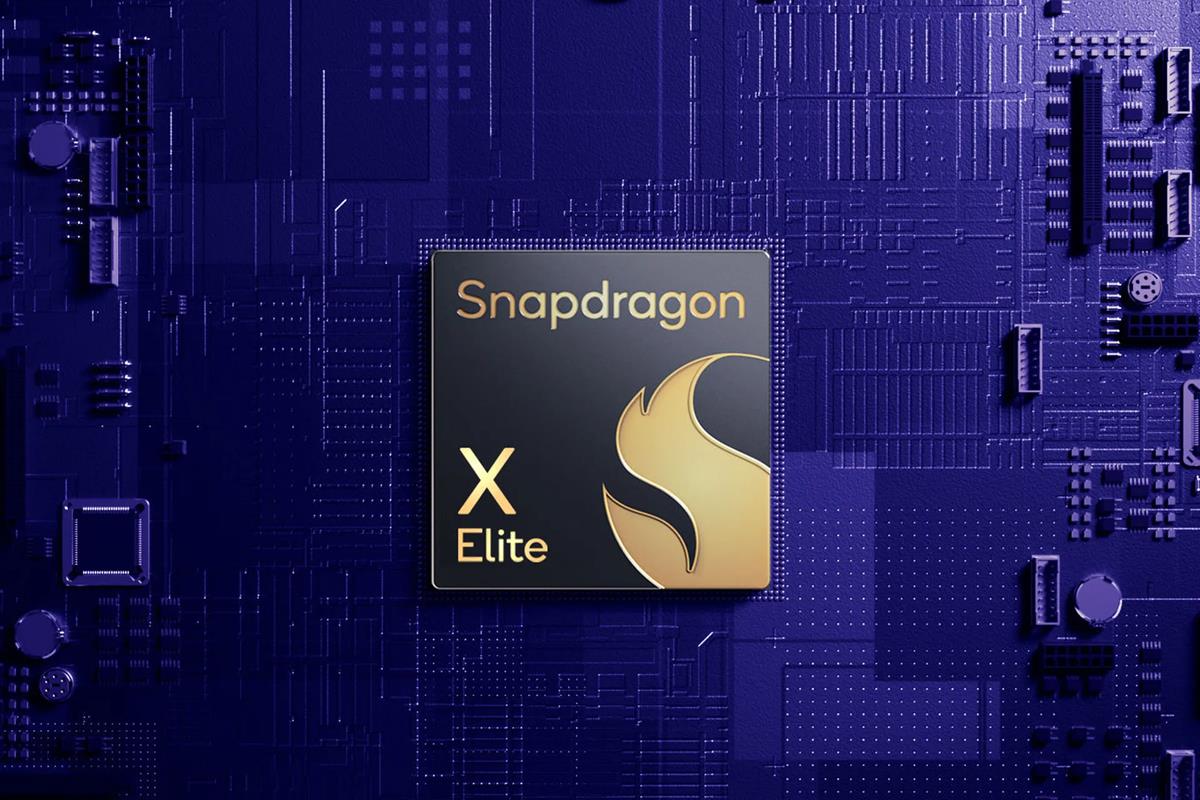
The first reviews of Qualcomm’s first Snapdragon X Series laptops have been published. But things are looking less than impressive in the gaming department.
Microsoft has partnered with Qualcomm, granting the chip-maker an exclusivity deal for Copilot+ PC. Though laptops featuring the new Snapdragon X chipsets: the Snapdragon X Elite and the Snapdragon X Plus were revealed last month, the devices were under a review embargo. This was due to Microsoft’s decision to postpone Recall. As Zac Bowden from Windows Central noted, the Redmond company had instructed its OEM partners to not ship review units to outlets until June 18th, until it removed Recall from the devices.
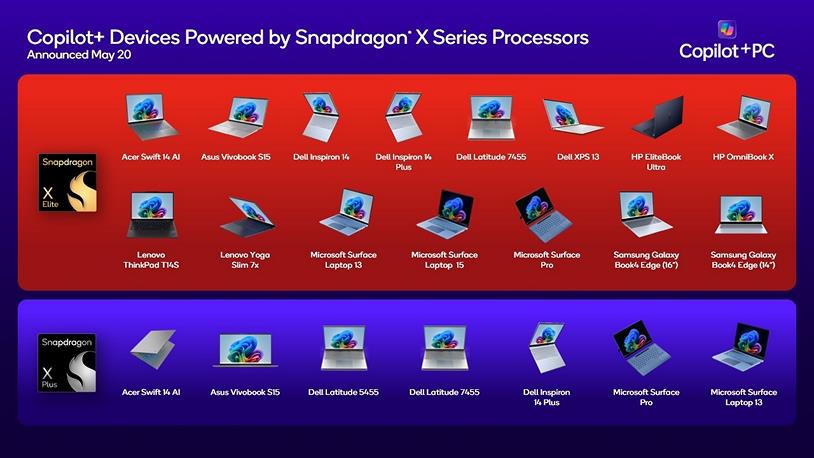
Now that the embargo has been lifted, reviews of the new Snapdragon X Series laptops are available on major blogs and YouTube channels. Here is a quick rundown of the chipset’s technical specifications.
Qualcomm Snapdragon X key specs
- CPU: Qualcomm Oryon CPU 10 or 12 cores, up to 3.8GHz Multi-Thread, up to 4.3GHz Dual Core Boost, 42MB Total Cache
- GPU: Qualcomm Adreno, up to 4.6 TFLOPS
- NPU: Qualcomm Hexagon, 45 TOPS
- Memory: Up to 64GB LPDDR5x, 135 GB/s, 8448 MT/s, 8 Channels, Shared System Level Cache
The Qualcomm Snapdragon X is built on a 4nm process, and has up to 12 Oryon CPU cores clocked up to 3.8GHz (Multi-Thread) and can be boosted up to 4.3GHz. The SoC features an Adreno graphics processing unit capable of 4.6 Teraflops. Qualcomm has its own app called Adreno Control Panel, which will keep GPU drivers up-to-date, and automatically optimize game settings.
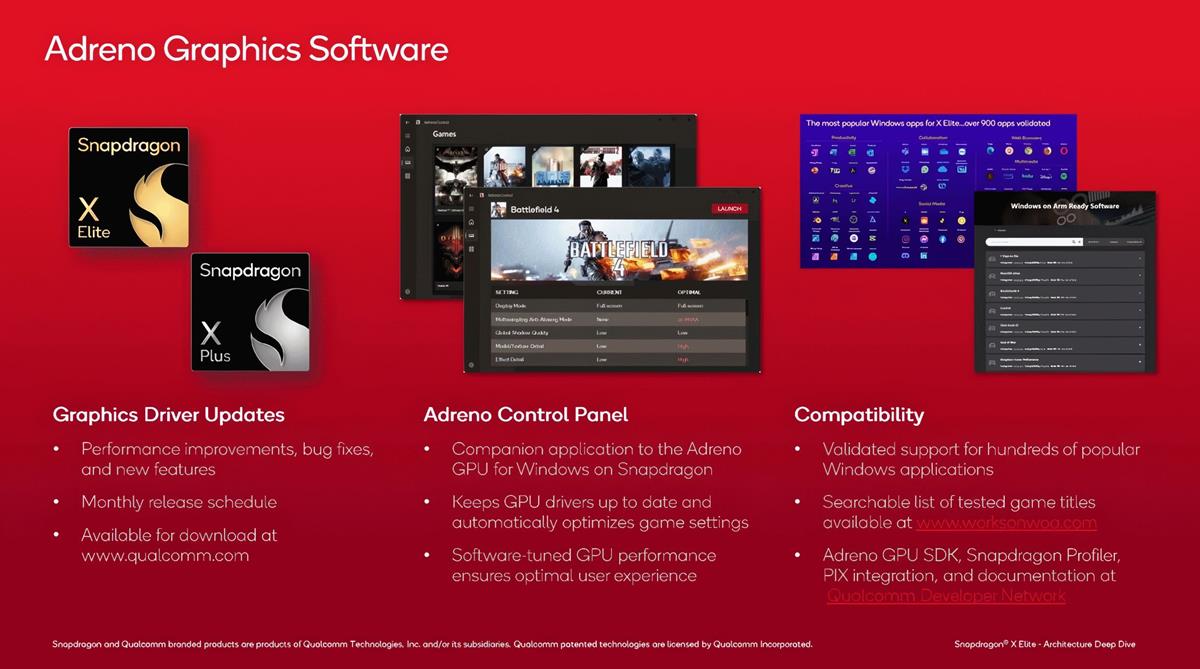
Reviewers are unimpressed by Snapdragon X gaming performance
That sounds impressive on paper, and real-world tests seem to suggest the same. Reviewers who tested the ASUS Vivobook S 15 say that the device has very good performance for day-to-day tasks, and an impressive battery life. The SoC could give Intel Lunar Lake and AMD Strix Point some good competition. But, Qualcomm’s Snapdragon X chipset seems to have fared poorly in gaming tests, according to benchmarks of various games that the reviewers played on the laptops. Notebookcheck compared the chipset with other ARM chips, and the Snapdragon X ranked lowest in the test.
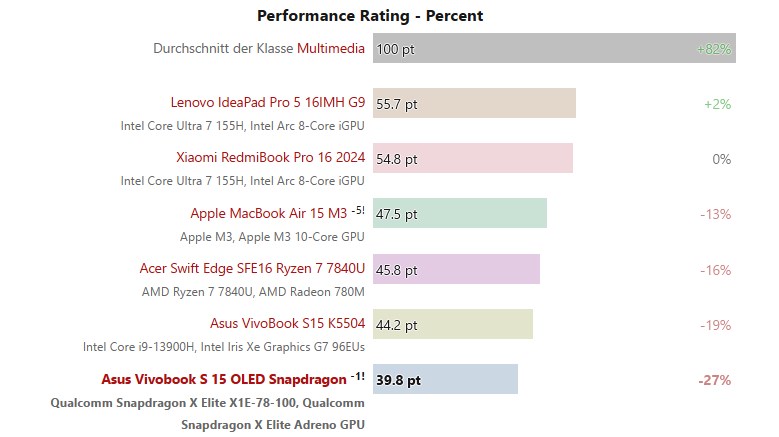
Other reviewers have also pointed out that the Snapdragon X chipsets don’t deliver optimal frame rates. Videocardz reports that Cyberpunk 2077 ran at 34 fps, while Baldur’s Gate 3 ran at 35 fps at 1080p low graphics settings. And this seems to be the case even when upscaling technologies like AMD’s FSR or Intel’s XESS were used. Some games reportedly didn’t run at all, but that’s probably because of emulation issues on the ARM chipset. Another issue that reviewers highlighted was that some games were locked to a different resolution than the laptop’s screen.
You could ask why use it for gaming, well, Qualcomm did market the chipset as a gaming chipset, saying that it “generates game-changing performance and efficiency”. The company had even claimed that most Windows games should just work fine on devices powered by its ARM chipset.
Despite having a powerful NPU, the laptop cannot use it for Copilot+ PC, because it is not designed for on-device assistance. The app uses Microsoft’s servers for providing online responses. Samsung launched the Galaxy Book4Edge a few days ago, and the Snapdragon X Elite powered laptop likely suffers from the same flaws in gaming performance like the other devices did.
On a sidenote, Microsoft is adding new features to Windows Recall, despite criticism from security experts who have questioned the privacy issues and risks that could arise due to the automatic-screenshot capturing system of the A.I. tool.




